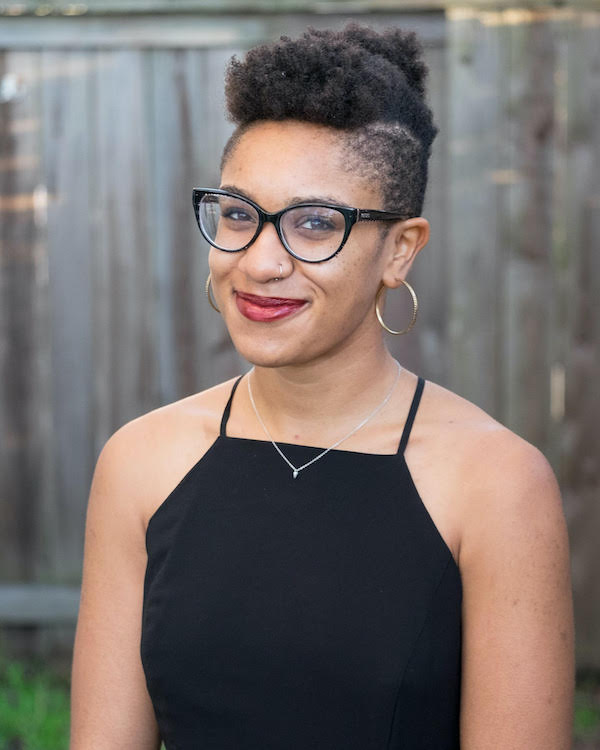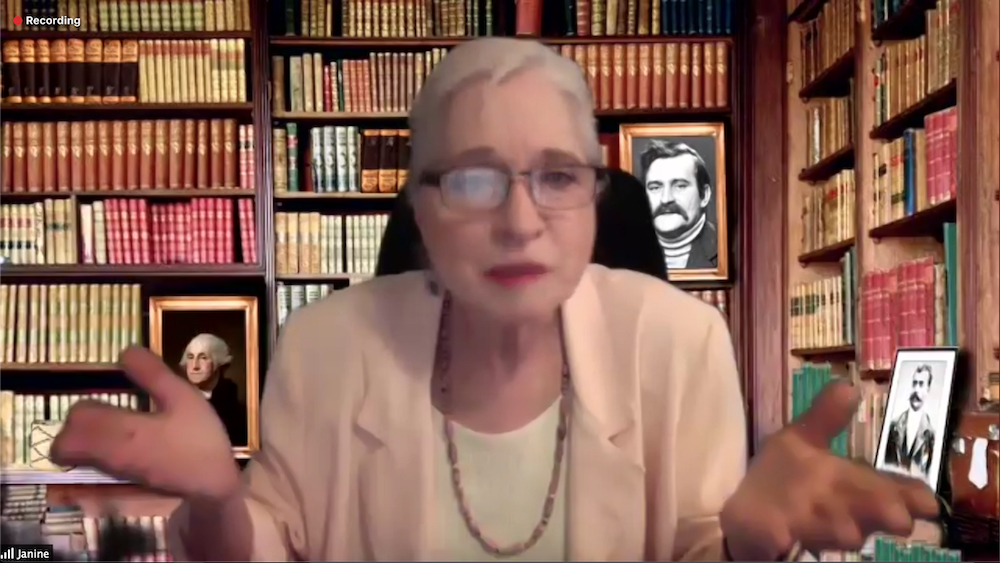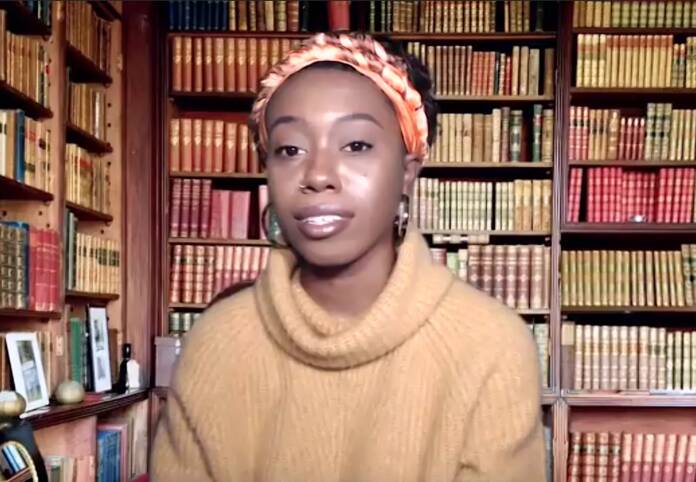In The Niceties, playing online from Shotgun Theater, a Black student, Zoe (Regina Monique) at an unnamed elite Northeast university (clearly Yale given it’s in Connecticut) visits her white professor, Janine (Scarlett Hepworth), to discuss a paper she wrote on the role of enslaved people in the American Revolution. The professor starts by pointing out a few small punctuation and grammar errors, then goes on to question her thesis and ask for more research done in the library rather than online. A polite debate ensues, then blows up into a clash of philosophical and historical viewpoints.
The Niceties is a dramatization of the bias, pushback, and micro-agressions many Black scholars receive in institutional environments, and also more than that, encompassing the entirety of US history and the meaning of “truth.”
The 2016 script made a strong impression on director Leigh Rondon-Davis. “Honestly, I just saw myself,” they said. “I went to a private high school in Oakland and to Wellesley College and first saw the script, I wished I’d had the courage like Zoe to push back.”

Rondon-Davis calls The Niceties a perfect play for right now. “I think we’re just seeing these dynamics play out in real world now with pushing back against institutions and systems,” they said. “There’s this tone policing and this, ‘You can’t get too angry or no one will hear you,’ and these ways in which white supremacy is so entrenched in our lives and the methods of gatekeeping so affect marginalized communities.”
Monique read the script last October. She says it shocked her and she was almost too intimidated to audition until her mother convinced her.
“The language was very relevant, and I couldn’t believe someone could write something like this,” she said. “The way it talks about bias in American history and what we’re taught and what we should be taught and how relevant the American revolution was. Playwright Eleanor Burgess eloquently wrote about that and how it relates to the present day.”

In their meeting, Janine wants Zoe to find more primary source citations for her paper although Zoe counters that that people without money or education or property weren’t in a position to leave much evidence behind. She tells Zoe that spending her weekend protesting rather than in the library is a choice, and they argue over Sandra Day O’Connor, the first woman Supreme Court justice. Having your perspective and experience and opinion belittled feels familiar to Rondon-Davis.
“I’ve definitely been in spaces and been a little frustrated and had those frustrations dismissed,” Rondon-Davis said. “People shut down, and it’s like, ‘I need you to hear me,’ and a white woman in the room will end up crying.”
Monique said reading The Niceties again in preparation for her role, it felt like a whole different play and related to the current protests. “It was like it was predicting what was to come,” she said. “With all this talk about George Washington and statues and the people we hold up.”
Both Janine and Zoe have reasons for believing what they do, Rondon-Davis says, and their views should be heard. Monique agrees.
“When you come see it, be open to different perspectives,” she said. “The play forces you to listen.”
THE NICETIES DIGITAL PERFORMANCE
July 17 and 18, 7pm
Tickets and more info here




